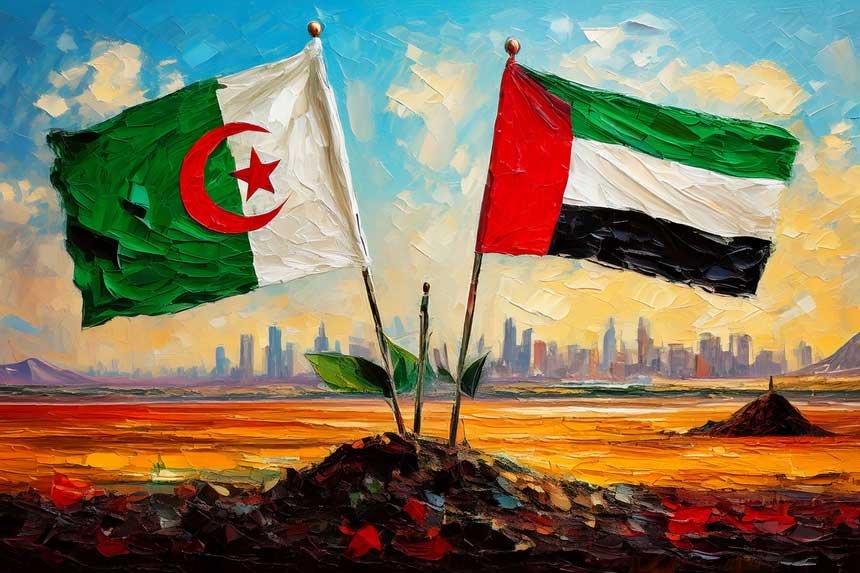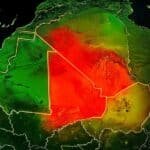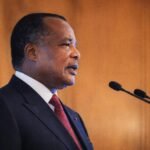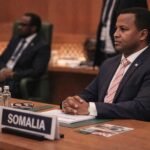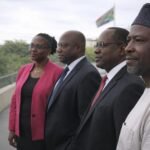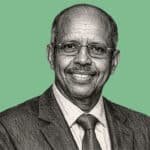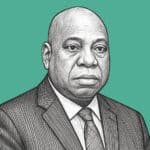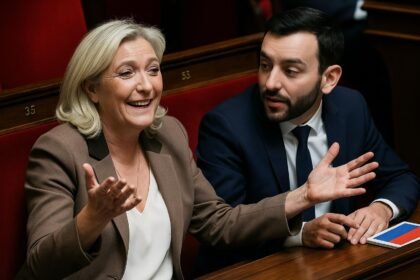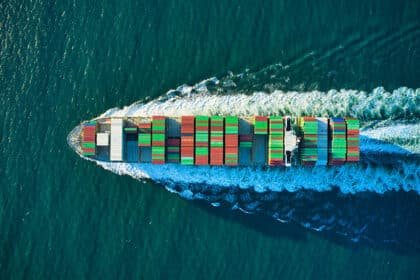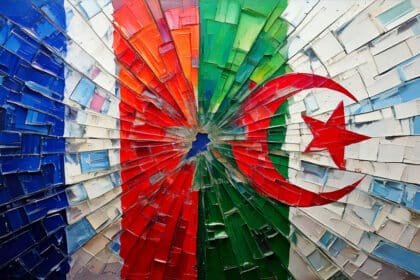Setting the Scene: From Latent Friction to Overt Hostility
In the opening week of May 2025 a familiar undercurrent of suspicion between Algeria and the United Arab Emirates acquired an unmistakably adversarial tone. On 2 May Algerian state television devoted a special broadcast to denouncing the Emirates as a “micro-state” devoid of historical legitimacy and alleged it financed conflicts across the Sahel. These accusations were immediately picked up by regional outlets, which noted the unusual vitriol and its resonance with previous Algerian indictments of France, Morocco and Spain.
- Setting the Scene: From Latent Friction to Overt Hostility
- The Immediate Catalysts of May 2025: Media, Memory and National Honour
- Historical Context: A Relationship Marked by Intermittent Trust
- Information Battles and the Weaponisation of the Airwaves
- Energy and Economic Stakes: Gas Pipelines and Investment Calculus
- Security Geometry: The Sahel, Libya and Sudan
- Western Sahara and the Symbolic Geography of Recognition
- External Actors: France, Spain and the United States
- Multilateral Arenas and the Arab League
- Domestic Politics in Algeria: Regime Security and the Logic of External Adversaries
- Domestic Politics in the Emirates: Assertive Foreign Policy and Reputation Management
- Scenario Analysis: Escalation, Containment or Managed Rivalry
- Diplomatic Options: Confidence-Building Measures and Multitrack Engagement
- Prognosis: Towards a Functional Co-existence
- Parameters for Constructive Arab Diplomacy
Abu Dhabi’s riposte came on 8 May, via an editorial in the Emirati newspaper Al Bayane, which dismissed Algiers’ charges as “scapegoating” and reminded its audience that Algeria had itself never formally recognised the federal union established in December 1971. The editorial labelled Algiers the captive of an inward-looking security apparatus structurally inclined to seek external targets.
The Immediate Catalysts of May 2025: Media, Memory and National Honour
The proximate spark was an interview granted by the historian Mohamed Amine Belghit to the Emirati channel Sky News Arabia, in which he portrayed the Amazigh component of Algerian identity as an “artificial colonial construct”. Within twenty-four hours Belghit was arrested in Algiers on charges of undermining national unity, prompting commentary in French and Arabic media that warned of an impending bilateral crisis.
For Abu Dhabi the detention appeared a disproportionate response, violating academic freedom and conflating individual opinion with state policy. For Algiers the incident was interpreted as a provocation orchestrated from the Gulf. The clash thus crystallised an older debate on history and identity into a confrontation over sovereignty and influence, illustrating how narratives of national honour can quickly migrate from domestic discourse to the diplomatic agenda.
Historical Context: A Relationship Marked by Intermittent Trust
Algerian-Emirati ties have seldom been linear. During the 1990s Algiers sought Gulf investment to rebuild its hydrocarbons sector after a decade of violence, while Abu Dhabi viewed Algeria as a long-term energy partner of comparable scale to Qatar. A brief efflorescence culminated in the 2018 concession allowing Dubai Ports World to manage two Algerian terminals. Yet the rapprochement faltered when the Emirates endorsed Morocco’s autonomy plan for Western Sahara—an issue on which Algeria remains maximalist—and when Abu Dhabi joined the Abraham Accords in 2020, compounding Algiers’ wariness of Israel’s regional normalisation.
Information Battles and the Weaponisation of the Airwaves
The May 2025 exchange underscores how digital and broadcast platforms have become extensions of foreign policy. Algerian public television’s denunciation signalled an official posture, bringing state legitimacy to language more often confined to social networks. Conversely, the Emirati rejoinder opted for a quasi-official newspaper rather than government communiqués, enabling an assertive yet deniable tone. Commentators in Sahel Intelligence and North Africa Post argue that Algiers is practising “institutionalised derailment”, while Abu Dhabi is honing its capacity to respond through surrogate media.
In this environment, local audiences are exposed to echo chambers that reinforce geopolitical binaries—Algeria as anti-imperial bulwark versus the Emirates as avant-garde of Arab modernity—leaving scant room for nuance. The episode therefore exemplifies an emergent norm whereby states outsource strategic messaging to semi-official outlets, heightening volatility.
Energy and Economic Stakes: Gas Pipelines and Investment Calculus
Although the rhetorical clash centres on identity, energy is never far beneath the surface. Algeria supplies roughly one-third of Spain’s natural-gas imports via the Medgaz pipeline. In May 2024—an episode that looms large in today’s quarrel—Algiers threatened to cancel deliveries should shares in the Spanish company Naturgy be sold to Abu Dhabi’s TAQA.
This warning signalled that Algeria is prepared to weaponise energy contracts to counter perceived Emirati encroachment. From Abu Dhabi’s perspective, such gestures erode the predictability on which Gulf investment decisions depend. Economic interdependence is therefore double-edged: lucrative yet vulnerable to politicisation, and likely to remain a lever in future negotiations.
Security Geometry: The Sahel, Libya and Sudan
Algeria’s security doctrine foregrounds geographic contiguity: stabilise the Sahel to protect the northern littoral. The UAE, by contrast, pursues power projection through partnerships and military bases from the Red Sea to Libya. When the Algerian general staff accused the Emirates of “injecting money” into Malian factions in April 2024, Abu Dhabi brushed off the claim, but the narrative resonated domestically in Algeria, where memories of external interference are acute. The present quarrel thus inherits a long chain of mutual suspicion over third-country theatres, compounded by Algeria’s mediation efforts in Libya and its principled opposition to external bases on Maghreb soil.
Western Sahara and the Symbolic Geography of Recognition
Nothing stirs Algerian diplomacy more viscerally than Western Sahara. Abu Dhabi’s early decision to open a consulate in Laayoune and its unequivocal support for Rabat’s autonomy plan marked an unmistakable shift from benevolent neutrality to active endorsement of Morocco. For Algiers this constitutes not mere symbolism but a strategic affront, given its sponsorship of the Polisario Front. The 2021 rupture of diplomatic ties with Morocco and the Emirati move are therefore intertwined: Algeria frames the Emirates as an accomplice in what it perceives as Moroccan irredentism, while Abu Dhabi views its stance as consistent with broader Arab backing for Morocco.
External Actors: France, Spain and the United States
Paris, Madrid and Washington each watch the dispute with vested interests. France seeks to repair its own strained relationship with Algiers after reciprocal expulsions of diplomats in April 2025, wary that Algerian-Emirati antagonism might spill into francophone Africa. Spain prioritises uninterrupted gas flows and thus fears that an escalation could endanger supply at a sensitive juncture in its energy transition. The United States, currently courting Gulf capital for large-scale investment vehicles, may find itself balancing its strategic partnership with the UAE against a desire to avoid further alienating Algeria, whose mediation in Sahelian crises Washington still deems useful. These third-party equities raise the likelihood of discreet shuttle diplomacy aimed at defusing the stand-off.
Multilateral Arenas and the Arab League
Algeria hosts the next ministerial meeting of the Arab League’s Peace and Security Council in July 2025. A continued public quarrel would threaten consensus on Syria’s reintegration and on collective responses to the Sudan conflict, in which Abu Dhabi faces allegations of clandestine arms deliveries. Televisual images of Algerian anchors deriding Emirati statehood complicate the optics of Arab solidarity, while Emirati media’s portrayal of Algiers as “institutionally paranoid” risks undermining the League’s deliberative ethos. For Cairo, traditionally the League’s linchpin, preserving institutional coherence may necessitate back-channel pressure on both capitals.
Domestic Politics in Algeria: Regime Security and the Logic of External Adversaries
Domestic calculations are critical. President Abdelmadjid Tebboune faces a fractious political landscape marked by youth unemployment, demands for constitutional reform and rising inflation despite robust hydrocarbon revenues. Casting external actors as hostile allows the executive to rally nationalist sentiment and deflect criticisms of governance. The historian episode fits this pattern, reinforcing the narrative that foreign networks exploit historical fault-lines to destabilise Algeria. Media offensives against France in March, then Mali in April and now the Emirates in May suggest a policy of sequencing adversaries to maintain domestic mobilisation.
Domestic Politics in the Emirates: Assertive Foreign Policy and Reputation Management
For Abu Dhabi, the stakes are reputational rather than existential. The UAE’s soft-power portfolio—Expo 2025, a forthcoming Disney theme park on Yas Island and its space-programme partnerships—relies on projecting modernity and pragmatism. Accusations of imperial overreach or interference in Amazigh identity debates threaten that image. The swift, sharp editorial response thus served to inoculate domestic and international audiences against the charge of cultural aggression, while stopping short of actions—such as recalling an ambassador—that would raise the cost of escalation.
Scenario Analysis: Escalation, Containment or Managed Rivalry
Three trajectories appear plausible. First, a spiral in which reciprocal media attacks prompt economic reprisals: Algeria could rescind DP World port concessions or delay visas for Emirati investors; Abu Dhabi might lobby OPEC+ partners to marginalise Algiers in production-quota negotiations. Second, a containment path in which both sides delegate the issue to lower-level officials while abstaining from further rhetorical excess, allowing energy contracts and capital flows to resume their pragmatic rhythm. Third, a managed rivalry in which episodic flare-ups are accepted as the price of divergent geopolitical visions, yet calibrated so as not to endanger core national interests. Historical precedent suggests the third outcome is most likely: both states have previously navigated tensions without severing diplomatic relations.
Diplomatic Options: Confidence-Building Measures and Multitrack Engagement
Confidence-building could begin with a joint academic workshop under Arab League auspices to examine Amazigh heritage across North Africa, converting an identity dispute into an opportunity for cultural diplomacy. An energy dialogue, perhaps facilitated by Spain, could clarify conditions under which Algerian gas exports and Emirati downstream investments proceed insulated from share-ownership controversies. Finally, a moratorium on televised invective, monitored by the Arab States Broadcasting Union, would address the proximate trigger of the present quarrel.
Prognosis: Towards a Functional Co-existence
Structural drivers—namely Algeria’s strategic anxiety in an increasingly competitive Maghreb-Sahel theatre and the UAE’s ambition to shape MENA geopolitics—are unlikely to recede. Yet both capitals are rational actors aware of the economic and reputational costs of prolonged confrontation. For Algiers, Gulf capital remains essential for diversifying away from hydrocarbons; for Abu Dhabi, Algeria’s size and diplomatic reach in Africa render outright hostility counter-productive. A negotiated modus vivendi, underpinned by mutual recognition of legitimate security concerns, therefore remains attainable.
Parameters for Constructive Arab Diplomacy
The May 2025 crisis is less a sudden rupture than an acute manifestation of longstanding incompatibilities in national narratives, regional aspirations and threat perceptions. By interrogating the layers—historical, ideological, economic and strategic—this essay shows that the rift, though serious, is amenable to calibrated diplomacy. Broader Arab cohesion, already strained by divergent alignments on Iran, Israel and the Sahel, would benefit from early de-escalation. Success will depend on both parties’ willingness to privilege long-term gains over short-term rhetorical victories, to embed energy ties within transparent rules and to restore the distinction between scholarly dissent and state hostility. Should cooler heads prevail, the present quarrel may ultimately serve as a cautionary tale, encouraging the Maghreb and the Gulf alike to institutionalise dispute-resolution mechanisms commensurate with the complexity of twenty-first-century Arab diplomacy.
